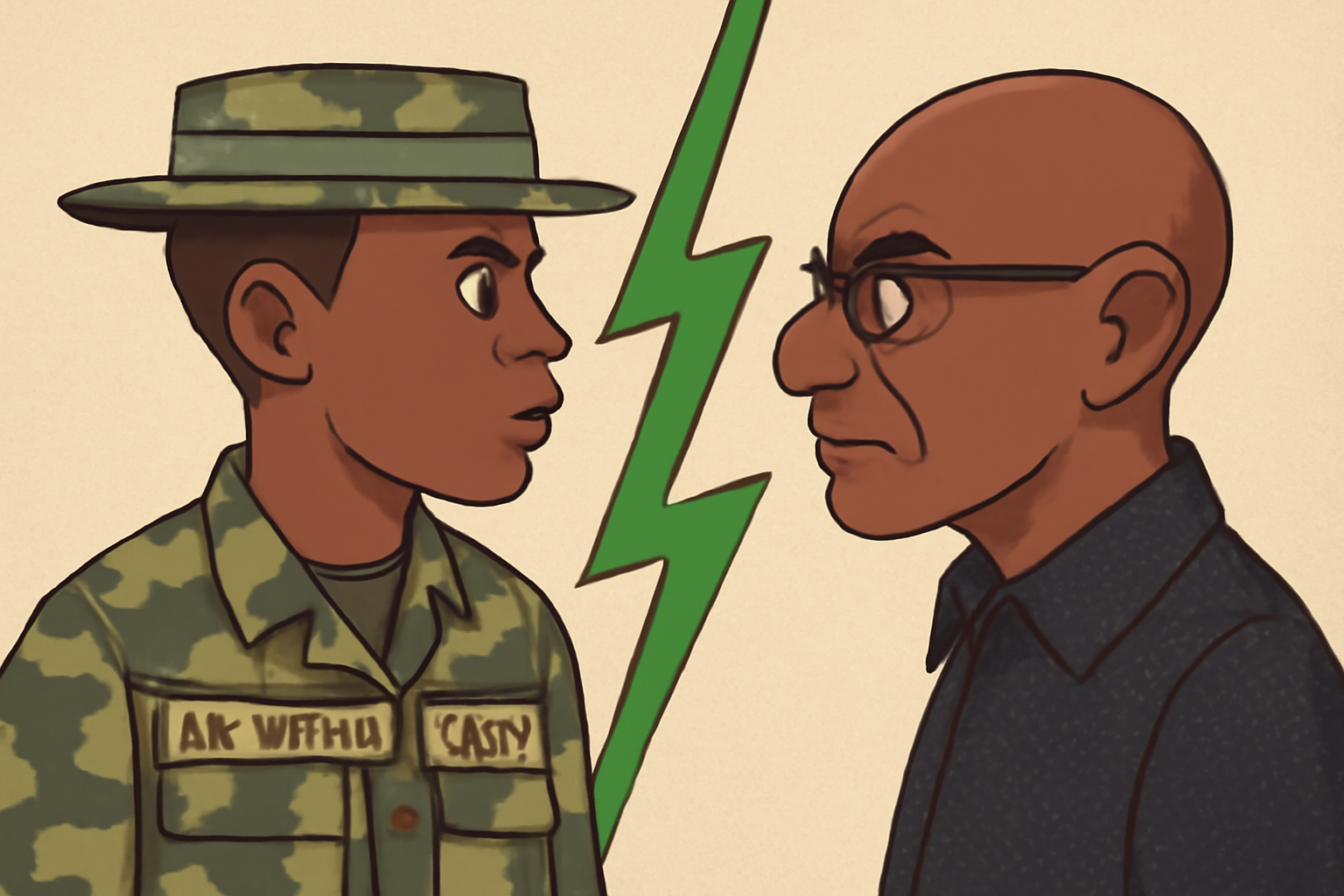The confrontation between the Federal Capital Territory’s Minister, Nyesom Wike, and naval officer, Lieutenant Ahmad M. Yarima in Abuja has exploded into a national debate on power, perception, and psychology. What began as a land dispute has turned into a defining moment of public sentiment in Nigeria.
Across social media platforms, the conversation has moved beyond legality to loyalty. Millions of Nigerians are not debating who was right under the law, but who appeared right in character. And in an unexpected twist, it is the uniformed naval officer, not the civilian minister, who now commands public admiration.
What’s Trending and Why It Matters
The viral video of Wike attempting to access a disputed plot of land allocated to retired Vice Admiral Awwal Zubairu Gambo, the former Chief of Naval Staff (2021–2023) has dominated timelines, sparking outrage, satire, and countless memes.
While legal experts insist the officer erred by obstructing a government minister executing official duties, Nigerians are responding to the story emotionally, not constitutionally.
To many, the officer’s calm defiance represented discipline and integrity, while Wike’s fiery tone reinforced his public image as domineering and impulsive. In a nation where trust in politicians remains fragile, the officer’s restraint symbolised resistance against unchecked power.
Where the People Stand
Public opinion has split sharply, yet the majority clearly sides with the military man. Citizens across the country have flooded social media with praise for the officer’s composure, describing him as a true patriot who refused to cower under political pressure.
This reaction exposes a deeper social truth: Nigerians often judge leadership by personality, not principle. Wike’s reputation for confrontation made many people instinctively root for his challenger, even when the law supported the minister’s position.
Why the Military’s Brand Appeal Spiked
This incident has unexpectedly boosted the military’s public image, at least for the moment. An institution once criticised for heavy-handedness now enjoys a surge of goodwill.
Emotion, not logic, drives this shift. In an era of distrust, Nigerians found solace in a uniformed officer who stood firm without aggression. His composure offered a glimpse of what many wish state institutions embodied: courage without corruption and firmness without fear.
The Nationalism Effect
The viral debate also exposes something deeper about Nigeria’s collective mindset. When defiance appears more admirable than due process, it highlights a fragile bond between citizens and their government.
The military’s revived image does not reflect renewed faith in the institution itself but rather frustration with political leadership. Nigerians are yearning for authority figures who embody integrity and discipline.
However, glorifying defiance simply because it feels righteous poses a risk. It blurs the line between courage and insubordination, potentially undermining respect for democratic order.
The Bottom Line
The clash between Wike and the naval officer may fade from headlines, but its cultural footprint will remain. It has revealed how easily public sentiment and institutional perception can shift in the era of viral media.
In the end, Nigerians were not defending legality or rebellion. They were defending an image; the image of courage, composure, and conviction in a country still searching for leaders who embody all three.






Comment
No comments found.